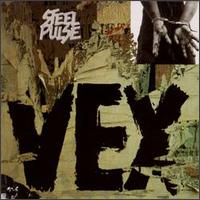| Vex | ||||
|---|---|---|---|---|
 | ||||
| Studio album by | ||||
| Released | 1994 | |||
| Recorded | Grove, Ocho Rios, Jamaica | |||
| Genre | Reggae | |||
| Length | 60:35 | |||
| Label | MCA [1] | |||
| Producer | Steel Pulse, Stephen Stewart | |||
| Steel Pulse chronology | ||||
| ||||
Vex is an album by the English reggae band Steel Pulse, released in 1994. [2] [3] The album peaked at No. 7 on the Billboard Top Reggae Albums chart. [4] [5] The band promoted the album with a North American tour. [6]